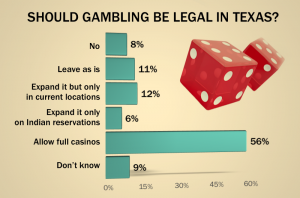Report Marks Indian Gaming Revenue Decline
March 25, 2011 by Stics·
Leave a Comment
Indian Gaming Still the Recessionary Winner
Indian gaming began its widespread popularity in the States during the late 1980’s and its growth rapidly escalated. Despite the trend, even Indian gaming could not completely escape the impact of the recession, reporting an overall revenue decline of 1% in 2009, as reported in Casino City Press.
Casino City’s latest Indian Gaming Industry Report reveals national Indian gaming revenue declined 1% to $26.4 billion, from $26.7 billion the previous year. This marks it the first year of decline in Indian gaming history. According to the report, the overall slowdown was due to the economy and other factors including, public policies restricting the supply of gaming.
The performance of Indian gaming varied widely across states, California and Oklahoma were the top two states accounting for 38% of the total national Indian gaming revenue.
The overall decline in Indian gaming was much less serious than the commercial casino of the nationwide gaming industry.
Why Did the Indian Gaming Community Do So Well in the Economic Downturn?
Stics believes there are two major factors that contributed to the relative resilience of Indian Casinos over the past few years― and they both relate to location.
High Percentage of Local Gamers
If a property has a higher percentage of local gamers, its resilience in an economic downturn will be greater. Generally speaking:
- In a recession, people travel less.
- If gambling is a preferred form of entertainment, the destination gamble will reduce expenses by gambling closer to home.
- The percentage of gross gaming revenue from local gamers is higher for Native American properties than destination cities.
Less Competition
Native American properties often, but not uniformly, enjoy less competition. This is due to:
- Unique or remote locations
- A scarcity of nearby gaming alternatives
This encourages customer visit stability, as gamblers come back to nearby casinos more consistently over time. Because of this local access, gambling can become a recurring part of the local entertainment budget.
Should Gambling Be Legal In Texas?
March 8, 2011 by Stics·
Leave a Comment
Public Supports Gambling
Should gambling be legal in Texas? That was one of many interesting question in a recent independent poll of voters from the University of Texas and the Texas Tribune. The survey shows gambling has a fair amount of support in the public: The support for gaming is on the rise in Texas with 56 percent saying they would allow full casino gambling compared to 8 percent who want to ban gambling all together.
Details about the push for expanded Texas gambling can be found on the Texas Gaming Association website and is being fueled by the States budget shortfall expected to exceeding $15 Billion.
The casino owners say their plan could produce $1 billion, mostly through the fees that operators would pay for the licenses to operate casinos.
Everybody Wants a Piece of the Casino Gaming Pie
Today dozens of casinos in the neighboring states of Tennessee and Louisiana benefit from a large population of destination gamblers who live in the Dallas metropolitan area. Oklahoma is also gaming on gaming to fill its state coffers with 70 Oklahoma casinos with plans to expand gaming within the State.
Legalizing gaming in Texas would have a significant negative effect on existing regional gaming properties. For that reason we find it difficult to support this push. What are your thoughts? Do we have enough casinos near Texas?



